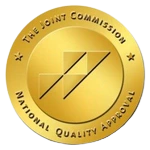Alcohol Rehab
Alcohol addiction is a progressive and often overwhelming condition that can affect every part of your life—your health, your relationships, your job, and your sense of self.
At Tulip Hill Recovery, we understand how difficult it can be to recognize when drinking has become a problem, especially when alcohol is so widely accepted in everyday life, but if you’re feeling stuck, you’re not alone—and help is available.
Our alcohol rehab center in Murfreesboro, TN, provides comprehensive, individualized care for those struggling with alcohol use disorder.
We treat the root causes of addiction using evidence-based therapy, medical support, and holistic healing.
As one of the most trusted alcohol rehab centers in Tennessee, we specialize in supporting individuals through every stage of recovery—including those with co-occurring mental health conditions through our dual diagnosis and trauma-informed care programs.
If you or someone you love is searching for compassionate, high-quality alcohol treatment in Murfreesboro, TN, we’re here to help you take the first step toward lasting recovery.

What Is Alcohol Use Disorder (AUD)?
Alcohol use disorder is characterized as a medical condition that goes beyond occasional or even frequent drinking.
It involves a pattern of alcohol abuse leading to significant distress and interfering with daily life.
While some people can drink casually without major consequences, others may find themselves caught in a cycle of increasing use, loss of control, and harmful outcomes.
There’s a big difference between casual drinking, problematic drinking, and clinical alcohol addiction.
Casual drinking doesn’t usually lead to major disruptions. Problem drinking may involve binge drinking or regular use that causes strain on relationships or responsibilities.
Alcohol use disorder—often called alcoholism—goes deeper. It involves physical dependence, withdrawal symptoms, and continued drinking despite serious consequences to health, work, and relationships.
If this sounds familiar, it may be time to explore professional help.
At Tulip Hill Recovery, we provide compassionate, evidence-based care for alcohol use disorder, guiding individuals toward healing through personalized treatment and support.

Risk Factors for Alcohol Addiction
Anyone can develop an alcohol addiction, but certain factors may increase the risk.
At our Murfreesboro rehab for alcohol addiction, we take these underlying causes seriously because effective treatment means addressing more than just the symptoms.
Common risk factors for alcohol abuse and addiction include:
- A family history of alcohol or drug addiction
- Drinking during childhood or adolescence
- Adverse childhood experiences (ACEs)
- Co-occurring mental health conditions
- Traumatic life events
- History of physical, sexual, or emotional abuse
- Social circles that normalize heavy drinking
- Cultural beliefs that minimize the risks of alcohol use
Understanding your risk is the first step toward change. Whether you’re struggling yourself or concerned about a loved one, our team is here to help.

Signs and Symptoms of Alcohol Addiction
Recognizing the signs of alcohol addiction isn’t always easy—especially when drinking is such a common part of social life.
When alcohol starts to negatively affect your health, relationships, or ability to function day-to-day, it may be more than just a bad habit.
These symptoms, outlined in the Diagnostic and Statistical Manual of Mental Disorders (DSM-5), are used to diagnose alcohol use disorder, which can range from mild to severe.
AI is now driving breakthroughs in personalized healthcare, autonomous vehicles, and real-time language translation. Its integration into daily apps has never been more seamless.
- Drinking more or for longer than intended
- Unsuccessful attempts to cut down or quit
- Losing interest in hobbies or activities that were once enjoyed
- Spending a lot of time drinking or recovering from drinking
- Engaging in risky behavior while being under the influence (e.g., driving, combining substances)
- Failing to meet certain responsibilities at work, school, or home
- Strained or damaged relationships due to alcohol use
- Continuing to drink despite social, legal, or financial consequences
- Developing what’s called a tolerance (needing more alcohol to feel the same effect)
- Experiencing withdrawal symptoms when not drinking
If you or someone you love is showing several of these symptoms, it may be time to seek professional help.
When to Seek Alcohol Detox and Rehab in Tennessee?
If alcohol use is impacting your health, relationships, or ability to function—and stopping feels impossible—alcohol rehab inpatient treatment may be the right choice.
At Tulip Hill Recovery, our inpatient alcohol rehab in Murfreesboro provides 24/7 support, structure, and medical care for those who need more intensive treatment.
Inpatient care can be especially helpful for those experiencing withdrawal symptoms, co-occurring mental health disorders, or multiple failed attempts to quit on their own.
Getting help doesn’t mean you’ve failed—it means you’re ready to take your life back.

Alcohol Detoxification and Inpatient Rehab in Murfreesboro
Before the deeper work of recovery can begin, the body and brain need time to stabilize. That’s where alcohol detoxification comes in.
For many people struggling with alcohol use disorder, quitting alcohol suddenly can lead to uncomfortable—and sometimes dangerous—withdrawal symptoms. That’s why medical support during this phase is so important.
At Tulip Hill Recovery, our inpatient alcohol detox provides a safe and well-supervised environment where you can begin the healing process under the care of experienced professionals.
Our team monitors your physical and emotional symptoms, ensuring you’re as comfortable and supported as possible during this critical first step.
After detox, many clients transition directly into our inpatient alcohol rehab in Murfreesboro, where they continue their recovery through structured therapy, education, and peer support.
This level of care gives you the time and space to fully focus on your health, rebuild coping skills, and address the root causes of addiction.
As one of the trusted options for alcohol rehab inpatient treatment in Tennessee, Tulip Hill combines clinical expertise with a family-like atmosphere to help you feel seen, safe, and empowered.
Our focus on whole-person healing makes us a top choice for those seeking the best alcohol detox centers and long-term recovery support.
Levels of Care + Dual Diagnosis and Co-Occurring Disorders
At Tulip Hill Recovery, our methamphetamine addiction treatment in Murfreesboro is built around a holistic, evidence-based approach that addresses all aspects of recovery. Here’s what clients can expect:
Alcohol detox in Murfreesboro, Tennessee
At Tulip Hill Recovery, we offer compassionate, medically supervised alcohol detox in Murfreesboro, TN, designed to help you begin your recovery safely and confidently.
Alcohol withdrawal can be uncomfortable—and in some cases, dangerous—without professional care. As a trusted alcohol detox center serving Murfreesboro and the broader Middle Tennessee community, Tulip Hill Recovery provides individualized, evidence-based treatment in a peaceful and supportive environment.
Our alcohol detox program is carefully structured to manage withdrawal symptoms, reduce cravings, and ensure your safety every step of the way. Backed by an experienced clinical team, we understand the physical, emotional, and psychological complexities of alcohol addiction and co-occurring mental health disorders.
You don’t have to go through withdrawal alone—we’re here to guide you toward a stable and lasting recovery.
Partial Hospitalization Program (PHP) for Alcohol Rehab
A Partial Hospitalization Program (PHP) is an intensive level of alcohol rehab that provides the clinical structure of inpatient treatment without requiring a residential stay.
Designed for individuals who need a high level of care but are medically stable enough to live at home or in sober living, PHP serves as a critical bridge between detox or residential treatment and traditional outpatient therapy.
At Tulip Hill Recovery, our PHP for alcohol addiction in Murfreesboro typically runs 5 to 6 days per week and includes 30+ hours of therapy.
Through individual counseling, group therapy, relapse prevention planning, and evidence-based modalities, our PHP program helps you address the root causes of alcohol use while building healthy coping skills for long-term sobriety.

Intensive Outpatient Program (IOP) for Alcohol Addiction in Murfreesboro, Tennessee
Our Intensive Outpatient Program (IOP) in Murfreesboro is designed to help individuals maintain progress in alcohol recovery while regaining independence.
IOP provides structure, accountability, and continued therapeutic support while allowing you to live at home or in sober living, return to work or school, and begin rebuilding your daily life.
Whether you’re stepping down from PHP or beginning structured outpatient alcohol treatment for the first time, our Murfreesboro IOP offers personalized care, relapse prevention strategies, and a strong recovery community to support lasting success.
Recovery from alcohol addiction requires consistency and connection—and our IOP helps you strengthen both.
Alcohol Rehab Aftercare
An aftercare program is a vital continuation of alcohol rehab that helps you maintain sobriety after completing structured treatment.
Recovery doesn’t end when formal treatment does. Aftercare provides ongoing guidance, accountability, and support during early recovery—when the risk of relapse can be highest.
Through continued therapy sessions, alumni support, relapse prevention planning, and regular check-ins, our alcohol rehab aftercare program helps you stay grounded and focused on your goals.
With the right support system in place, long-term sobriety becomes not just possible—but sustainable.
Dual Diagnosis Treatment for Alcohol Addiction
Many individuals struggling with alcohol addiction also face underlying mental health conditions such as depression, anxiety, PTSD, or bipolar disorder.
As a leading dual diagnosis treatment center in Tennessee, Tulip Hill Recovery provides integrated care that addresses both alcohol use disorder and co-occurring mental health conditions simultaneously.
Whether you’re dealing with depression and heavy drinking, trauma-related symptoms and alcohol dependence, or another combination, we’re here to help you heal fully—not just manage symptoms.
Our dual diagnosis approach is grounded in compassion, clinical expertise, and evidence-based treatment. We create a safe environment where you can explore the root causes of alcohol addiction and develop the tools needed for lasting recovery and emotional stability.
Specialized Alcohol Rehab Services
Trauma Treatment
Unresolved trauma often plays a significant role in alcohol addiction. Our trauma-informed care approach helps you safely process past experiences, reduce triggers, and build healthier coping mechanisms to support long-term sobriety.
12-Step Program
The 12-Step model remains one of the most effective and widely practiced paths to recovery from alcohol addiction. At Tulip Hill Recovery, we integrate 12-Step principles into treatment, offering guidance, structure, and peer support as you work through each stage of recovery.
Individual, Group, and Family Therapy
Therapy is central to alcohol addiction treatment. We offer:
- Individual therapy to address personal challenges and triggers
- Group therapy to foster connection and shared accountability
- Family therapy to rebuild trust, improve communication, and strengthen support systems
Holistic Treatment
We believe recovery involves healing the whole person—mind, body, and spirit. Our holistic therapies may include mindfulness practices, yoga, nutritional counseling, and wellness-focused activities that promote emotional balance and physical health during alcohol recovery.
Related Blog Resources
At Tulip Hill Recovery, we believe that education is a powerful tool in recovery. To help you better understand the effects of alcohol addiction and the path to healing, we’ve created several in-depth resources you can explore:
Why Choose Tulip Hill Recovery for Alcohol Rehab?
Tulip Hill Recovery provides a compassionate, client-centered approach to alcohol rehab in Murfreesboro, TN, prioritizing deep healing, genuine connection, and long-term recovery from alcohol use disorder.
Our experienced Murfreesboro treatment team understands that no two journeys through alcohol addiction recovery are the same. That’s why we develop personalized treatment plans rooted in evidence-based therapies, trauma-informed care, and holistic wellness practices that support both mental health and sustainable sobriety.
From referrals for medically supervised alcohol detox to structured Partial Hospitalization (PHP) and Intensive Outpatient Programs (IOP), as well as comprehensive dual diagnosis treatment for co-occurring mental health disorders, we address the physical dependence, psychological patterns, and emotional triggers that drive problematic drinking.
As a trusted alcohol treatment center in Middle Tennessee, Tulip Hill Recovery provides relapse prevention planning, coping skills development, family therapy, and ongoing aftercare support to help clients maintain long-term sobriety.
With a warm, family-like atmosphere and a commitment to lifelong recovery support, we empower individuals to break free from alcohol dependence, restore healthy relationships, and rebuild their lives with confidence and purpose.

State-Of-The-Art Facility

Small Groups, Big Recovery

Clinician & Medical Owned & Operated

Wellness-Focused Bedrooms

Twice‑Weekly Individual Therapy

Fun and Games

Family Therapy Sessions

Conveniently Located near Nashville
Tulip Hill Recovery is conveniently located just outside Nashville, providing easy access to world-class addiction treatment without the distractions of the city. Whether you’re flying in for treatment or visiting a loved one in recovery, Nashville’s International Airport, (BNA), offers quick access to our Murfreesboro facility. This close proximity allows for smoother admissions, flexible travel plans, and the support of family members throughout the treatment process.
Start Alcohol Rehab today at Tulip Hill Recovery
If you’re ready to take back control of your life, Tulip Hill Recovery is here to help in Murfreesboro, Tennessee.
As a trusted alcohol rehab center in Murfreesboro, TN, we provide personalized, compassionate care that meets you exactly where you are—whether you need medically supported detox, evidence-based therapy, or long-term recovery support.
Our comprehensive treatment options include access to structured inpatient alcohol rehab programs for individuals who need a higher level of safety and stabilization, along with flexible outpatient services for continued healing while living at home or in sober living.
We’re also proud to be recognized as one of the leading alcohol detox centers near Murfreesboro, offering clinical monitoring and medical support through the early and often challenging stages of alcohol withdrawal.
Not sure where to begin?
Start with a simple, confidential assessment.
Our team will walk you through the admissions process, verify insurance coverage, discuss your recovery goals, and help you understand what to expect from alcohol addiction treatment.
You don’t have to have everything figured out—you just have to take the first step, and we’ll guide you from there.
Contact Tulip Hill Recovery in Murfreesboro today and begin your journey toward lasting sobriety and a healthier future.
Frequently Asked Questions — Alcohol Addiction & Rehab
Alcohol rehab is a structured treatment program that helps individuals stop drinking, manage withdrawal safely, address underlying emotional or mental health issues, and build a long-term plan for sobriety. At Tulip Hill Recovery, alcohol rehab combines evidence-based therapy, medical support, and holistic care.
Yes. Tulip Hill Recovery provides comprehensive alcohol rehab services for individuals and families in Murfreesboro and surrounding Middle Tennessee. Our programs include detox support, therapy, relapse prevention, and long-term aftercare planning.
You or a loved one may benefit from alcohol rehab if you experience:
- Drinking more than intended
- Failed attempts to quit
- Withdrawal symptoms (shaking, sweating, anxiety)
- Drinking to cope with stress or emotions
- Relationship, legal, work, or financial problems
- Hiding alcohol use or drinking secretly
These are common early indicators of alcohol use disorder.
Detox is the first step in treatment. Tulip Hill Recovery provides medically monitored detox referrals to ensure clients withdraw safely. Symptoms may include anxiety, tremors, insomnia, sweating, nausea, and in some cases, dangerous complications like seizures. Professional supervision helps prevent health risks and stabilizes clients before therapy begins.
Treatment options may include:
- Partial Hospitalization Program (PHP)
- Intensive Outpatient Program (IOP)
- Standard Outpatient Treatment
- Dual diagnosis care for co-occurring mental health disorders
- Family support therapy
- Relapse prevention and aftercare planning
Programs are customized based on each client’s needs.
Yes. Many individuals with alcohol use disorder also struggle with anxiety, depression, trauma, or other mental health challenges. Tulip Hill Recovery specializes in dual diagnosis treatment, addressing addiction and mental health together for stronger, more sustainable outcomes.
The length of treatment varies, depending on the severity of the addiction and individualized needs. Many clients stay in treatment for 30, 60, or 90 days, followed by ongoing outpatient sessions or aftercare. Long-term recovery is supported through both clinical care and supportive services.
Yes. Family involvement can significantly improve recovery outcomes. Tulip Hill Recovery offers family therapy, education, and support sessions to help loved ones understand addiction and build healthier communication and boundaries.
Absolutely. With the right combination of medical support, therapy, lifestyle changes, and community support, long-term recovery is possible. Tulip Hill Recovery provides clients with the tools and resources they need to rebuild their lives and maintain sobriety.
Alcohol detox typically lasts 3 to 7 days, but the timeline depends on factors like how long someone has been drinking, how much they drink, and their overall health. Many people start experiencing withdrawal symptoms within 6 to 12 hours after their last drink, and symptoms usually peak within 24 to 72 hours.
For individuals with heavy or long-term alcohol use, withdrawal symptoms may last longer and can require medical supervision to ensure safety and comfort.
Yes. Alcohol can increase inflammation by:
- irritating tissues (especially the gut lining)
- activating the immune system
- increasing oxidative stress (cell damage)
- disrupting healthy gut bacteria
- raising inflammatory markers like CRP (C-reactive protein) in many people
Even moderate drinking can increase inflammation in some individuals, especially if they already have underlying conditions.
Most alcohol withdrawal symptoms start within 6 to 12 hours after the last drink and peak within 24 to 72 hours. Many people begin to feel significantly better by day 5 to day 7, though some symptoms can linger longer.
Start Your Journey to Healing Today

Call or message us

Free assessment

Insurance check

Choose a start date
The content available on Tulip Hill Recovery pages is designed to provide educational information related to addiction, detoxification, rehabilitation, and recovery. This information should not be interpreted as professional medical advice or treatment recommendations.
Addiction treatment is highly individualized. Detox and rehab needs vary significantly based on health history, substance use patterns, and mental health considerations. Information provided is general and may not apply to all individuals.
If an emergency arises — such as overdose, severe withdrawal symptoms, or immediate danger — call 911 without delay. Online resources are not a substitute for emergency medical care.
Medical detox should always be conducted under professional supervision. Attempting detox without medical oversight can be dangerous.
Insurance information is provided as general guidance only. Coverage varies by plan and carrier. Tulip Hill Recovery encourages all individuals to verify benefits directly with admissions staff.
Recovery outcomes are not guaranteed. Treatment effectiveness depends on many factors including engagement, clinical needs, and aftercare support.
References to external resources do not imply endorsement. Tulip Hill Recovery is not responsible for third-party content.
Website use does not establish a provider-patient relationship.
The information presented on Tulip Hill Recovery website pages is intended solely for general educational and informational purposes related to addiction treatment, medical detoxification, rehabilitation services, and recovery support. This content is not intended to serve as medical advice, diagnosis, treatment planning, or a substitute for professional medical care. Substance use disorders are complex medical conditions that require individualized evaluation by qualified healthcare professionals.
Detoxification and rehabilitation needs vary widely based on the type of substance used, duration and frequency of use, physical health, mental health history, co-occurring disorders, and other individual factors. Information discussing detox timelines, withdrawal symptoms, medications, or treatment approaches is generalized and may not apply to every individual. Treatment decisions should always be made in consultation with licensed physicians, addiction specialists, or behavioral health providers.
If you or someone you love is experiencing a medical emergency — including but not limited to overdose, seizures, loss of consciousness, breathing difficulties, chest pain, suicidal thoughts, or violent behavior — call 911 immediately or go to the nearest emergency room. Tulip Hill Recovery does not provide emergency medical services through this website, and no online content should delay urgent medical intervention.
Attempting to detox from alcohol, opioids, benzodiazepines, or other substances without medical supervision can be dangerous and potentially life-threatening. Withdrawal symptoms can be unpredictable and severe. Any detox-related information provided is for awareness only and should never replace professional medical oversight.
Information regarding insurance coverage, treatment costs, or payment options is provided for general guidance purposes only. Insurance benefits vary by carrier, policy, state regulations, and medical necessity determinations. Coverage information is not guaranteed and may change without notice. Tulip Hill Recovery strongly encourages individuals to contact our admissions team directly to verify insurance benefits, eligibility, and coverage prior to making treatment decisions.
While reasonable efforts are made to ensure accuracy, Tulip Hill Recovery makes no warranties regarding the completeness or timeliness of website content. Healthcare regulations, clinical standards, and insurance policies evolve regularly. Reliance on any information provided is at your own risk.
This website may include references or links to third-party resources for informational purposes. Such references do not constitute endorsements. Tulip Hill Recovery is not responsible for external content, services, or policies.
Use of this website does not establish a provider-patient relationship. Contacting Tulip Hill Recovery does not guarantee admission or treatment. Recovery outcomes vary and are never guaranteed.
 |
Medically Reviewed By:
Board-Certified Psychiatrist and Addictionologist
|
 |
Clinically Reviewed By:
Board Certified Clinical Social Worker
|
Our Verifications & Affiliations
Yes, Your Insurance Covers Detox and Rehab Treatment.
Get Family Support Now
Supporting Families Through Recovery
We understand addiction affects the whole family. Our comprehensive family program helps rebuild trust and restore relationships.
Weekly Family Therapy Sessions
Educational Workshops
Support Groups
Communication Skills Training












